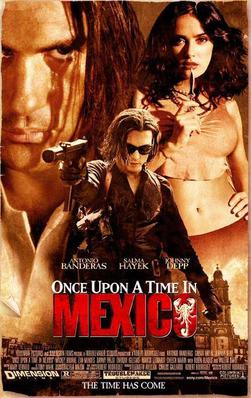 Stranger Than Paradise
Stranger Than Paradise (Jim Jarmusch, 1984)
Jarmusch's debut is made up of three short segments, the first being a short film originally of the same title. It's very minimal in its set-up and execution, taking place almost entirely inside a small apartment after Willie's cousin Eva arrives in the US from Hungary. Through repetition Jarmusch begins to add more and more in each scene, more dialogue, more action, even if it's just sprinkles of it. Between cuts are brief moments of nothingness, which vary as the film changes pace. There's not a lot going on at all, it's pretty much the opposite of every "coming to America" film you've ever seen, yet as the film goes on you begin to get a real sense of rhythm being built through Jarmusch's decisions.
The second part moves to Cleveland, we get more characters, more locations, and a lot more laughter. I've mentioned how I really dig Jarmusch's humour and I really find the cinema scene to be a brilliant example of how he builds hilarious situations with just a few simple ingredients. Cleveland, like New York before it is unglamorous and unspectacular, Jarmusch's America is a place that explores the lives and the environments that cinema often shies away from. We then move on to Florida, more of the same. This repetition and lack of plot allows for even more humour and fun.
Whilst I don't think this is Jarmusch at his very best, I was very impressed by how much I enjoyed this debut (kind of) feature. Working on limited resources, Jarmusch turns minimalism into one of the film's strengths which is a strong testament to his talent as a writer and director.
 Ghost Dog: Way of the Samurai
Ghost Dog: Way of the Samurai (Jim Jarmusch, 1999)
Another thing I love about Jarmusch is how throughout his filmography he tackles various different genres, taking the conventional and turning things on their head with his own unique characters and worlds.
This time it's the gangster genre and in the middle of it, he chucks Forest Whitaker as a Samurai-inspired assassin who lives by a code that is shared with the viewers through on-screen messages and actions. With Jarmusch we get heroes that we don't normally get with cinema, minor characters and voices are elevated and his America seems much more realistic in its variety of cultures.
Jarmusch incorporates cinematic influences, literature, poetry and music to tell a story that's both entertaining and emotionally moving.










 amazing casting especially Antonio Banderas,Salma Hayek,Eva Mendes,Enrique Iglesias,Willem Dafoe
amazing casting especially Antonio Banderas,Salma Hayek,Eva Mendes,Enrique Iglesias,Willem Dafoe 
 Check out my podcast:
Check out my podcast: 



